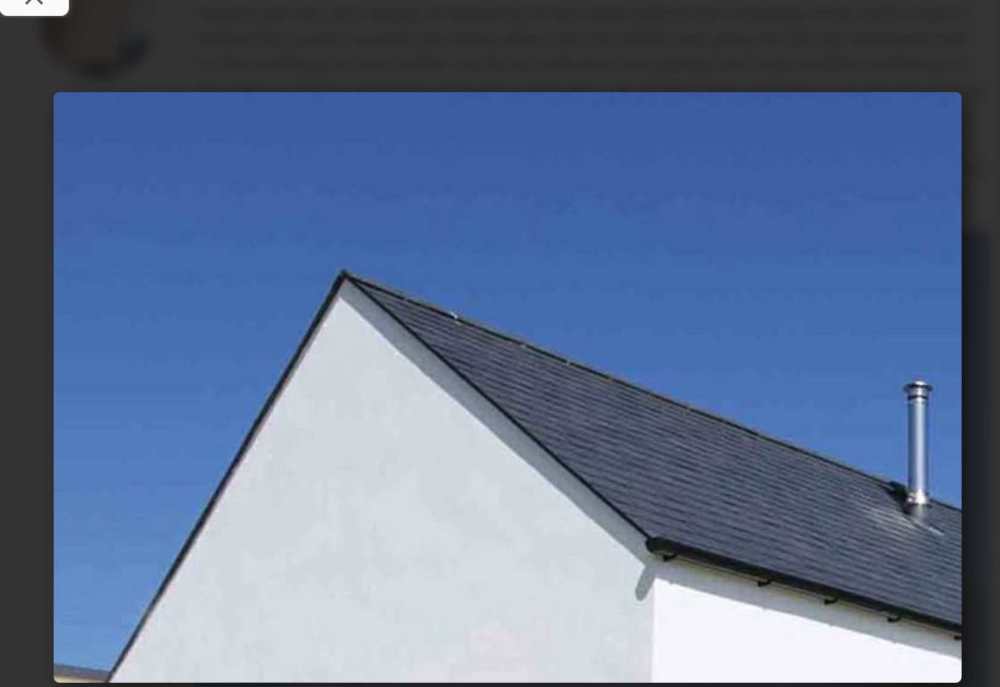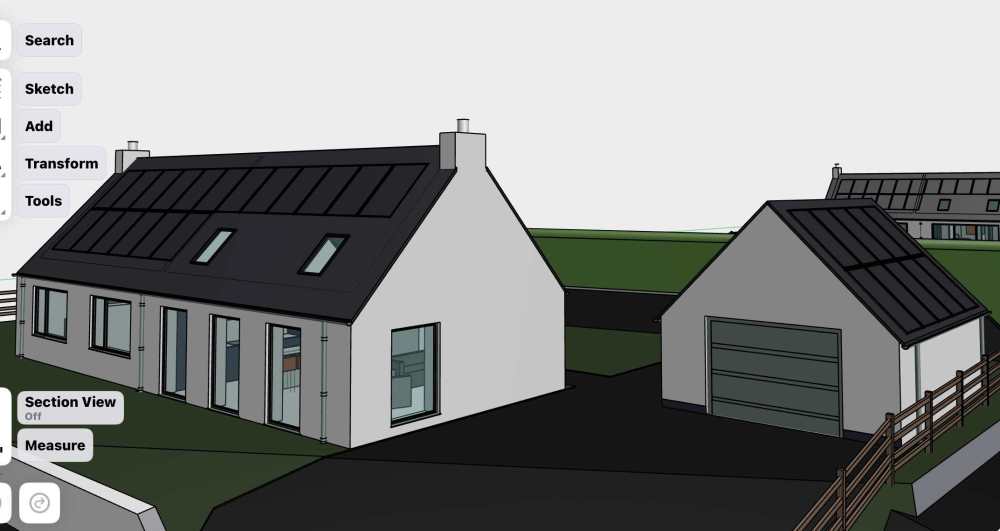
DannyT
Members-
Posts
93 -
Joined
-
Last visited
DannyT's Achievements

Member (3/5)
33
Reputation
-
Anyone interested in 200mm cavity wall ties, some for sale in the market place on here 😉 Ive had to reduce down to a 150mm cavity due to foundations already been in so can’t build any closer to edge of concrete to pass building control. disappointed but I’ll ad 25mm PIR to the inside to gain a little back.
-
I’m assuming the membrane will be air and vapour permeable to allow vapour out and air in to flow between the gaps in the sarking board? Thats a different membrane to the standard “breathable” type and more than likely expensive. Sorry if gone off topic a bit but just thinking out loud 😁
-
@JohnMo Thankyou. It’s so hard to find pictures of an install onto sarking and you have provided. Much appreciated👍 That looks very tidy indeed. Is that a swallow/swift box on the gable?
-
The house is currently going through planning for changes from the original design. In the meantime I’m trying to get my head around the Scottish way of doing a few things. Standard traditional roof construction from what I understand is as follows, Truss Sarking boards Breathable membrane Slate Now if I’m having built in GSE solar trays, my understanding is we will have to do following, Truss Sarking boards Breathable membrane Counter batten Tile batten Slate Is this correct? It’s okay to have the membrane flat with no slack or would membrane go on top of counter batten and be droopy? Trying to create a thin verge without any facia so looking how to achieve this on the gable ends. cheers
-
NHBC will do random wall plate checks, say every 10th house. Looking for gaps in socks, etc. checking everything structurally before roof gets felted in also. More about just closing off the cavity on a detached house and getting a box ticked. The real fussiness with fire socks/barriers comes when you are on semi detached or apartments and fire needs to be contained to a single unit.
-
We fit them under the ladder. As a full sock and cut at the top. NHBC inspector states that socks can’t be bent around a corner. Should be butt jointed. Sock should be a snug fit to either side of the cavity. If the cavity has spread a little over the height of the building we will either fit a wider sock or 2 thinner ones compressed together. The thing is as a bricklayer, we are responsible for fitting them according to management. We are also told how vital they are since the disaster at Grenfell. However we have never had any official training on fitting them nor do we get paid any extra for it.
-
Surge protection, fuses and MCBs in loft from PV array.
DannyT replied to jimseng's topic in Photovoltaics (PV)
I did this for that very reason. Sealed weather proof unit. A breaker switch for each string between panels and inverter. Clearly labelled solar power shut off. Mine was a DIY install so wanted to go beyond the normal standard. -
I’ve seen this happen on my parents house. I built the house and while working inside with house weather tight I could hear dripping in the cavity onto a tray. knocked a block out and the back of brickwork was soaking. Rain had been driving across open fields for 2-3 days. Mainly coming through the mortar joints. Coated the brickwork with a breathable sealer. Cavity trays are a must.
-
Door frame and new windows, and a wall to work around
DannyT replied to vishusingh's topic in Timber Frame
You could just box in above the door, insulate and membrane but you will have to clad the exterior for weather protection. on the other hand a 9 inch “T” lintel with brickwork to match on exterior. Depends how much you want to put into it. -
How to Build 100mm blocks onto 95mm blocks
DannyT replied to Spinny's topic in Bricklaying, Blockwork & Mortar
You keep the face of the 100mm flush with the block underneath and let the back overhang 5mm. -
I just commented on your other post but as a bricklayer in a 3-1 we get some work down in a day and your quote is taking the piss. What’s the £500 for tools? £9600 foreman? All of the gang should be capable of reading drawings, organising etc.
-
As a bricklayer of 22 years. Let me tell you now that day rate for a bricklayer is about £230 and £160 for a labourer. For £300 day rate, I’d want a 10hr shift done. £675 a thousand on standard stretcher bond and bucket handle pointing. £17m2 on 4inch concrete or thermalite.
-
600mm cavity tray on top of lintel, turned up at both ends, normally at least a brick and a half past the door/window reveal to ensure lintel is covered. Weep vents every 450mm (2 bricks) max. 450mm tray can be a bit of a stretch on 150mm cavity. Some sites now make us lay a tray below window if it has stone cill with weep vent either end. Not necessary in my opinion.
-
New extension, brickwork crap? Insulation concerns.
DannyT replied to boxrick's topic in Brick & Block
So it’s level, plumb and straight but guilty of not using a jointer to point it up and the crap blocks are falling to pieces as they are coming out of the packs ( common at work to throw half a pack at a time in skip ) I’d tell him to flush the joints up, get the insulation in now and leave him to crack on. I’ve seen a lot worse than that. How much are you paying a m2 labour. -
This is how we are told by NHBC to do it at work now but I can tell you now, my gable ends won’t be sitting on any cavity tray. Why would you want a non bonded slip joint running the length of your gables in gale force Winds?

.jpg.c21f3ac78c9b7efd90cbdcb312744dc5.thumb.jpg.7adcad4c0e384f5ecd7d56b0618df6e5.jpg)





